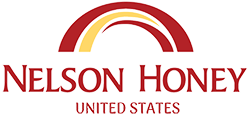About Us / Our Story
Take a walk down memory lane.
Where it All Began.
 Formed in 1973, Nelson Honey & Marketing (New Zealand) Ltd is owned and operated by my cousin Philip Cropp. Our grandfather began as a one-man apiary producing honey from hives as a sideline to his fruit orchard over 100 years ago. Nelson Honey brings together our three generations of beekeeping and honey production experience to offer you the best New Zealand bee products.
Formed in 1973, Nelson Honey & Marketing (New Zealand) Ltd is owned and operated by my cousin Philip Cropp. Our grandfather began as a one-man apiary producing honey from hives as a sideline to his fruit orchard over 100 years ago. Nelson Honey brings together our three generations of beekeeping and honey production experience to offer you the best New Zealand bee products.
Over the past four decades the company has grown substantially in production output, number of staff, export markets, and product diversity.
What began as a one-man apiary has now grown into a thriving business with operations in the Nelson Lakes areas, the Marlborough sounds, with over 5,000 hives strategically placed throughout the untouched pristine wilderness of the top of the South Island, around National parks and the beautiful West Coast
Combining Bee Venom and Manuka Honey
My cousin, Philip Cropp was the first to combine manuka honey with bee venom.
This came about after Philip received multiple requests from a 'farmer down the  road' who suffered severally from arthritis and came to the conclusion that a bee sting helped to relieve some of his pain.
road' who suffered severally from arthritis and came to the conclusion that a bee sting helped to relieve some of his pain.
After a considerable amount of testing to ensure the correct ration of Manuka honey to bee venom was used, Philip launched the Nectar Ease range. Some people like to call this the 'aches and pains honey' as some people suffering from sore joints and arthritis have said they rely on this honey to give them the relief and help they deserve, without the harsh side effects of medication.
Please note: what is said on this page should not replace your doctors sound medical advice, nor is it recommended for you to stop your prescribed medications. You always should seek medical advice before taking Nectar Ease.
Our Honey, Our Bees, Our Testing
Our Honey
We pride ourselves on extracting honey from some of the most untouched parts of New Zealand, free from chemicals and pollution. The end result is some of the purest honey in New Zealand.
Our Bees
We have a dedicated team of beekeepers who work with our bees year-round to continuously provide the rest of the world with the naturally delicious Nelson Honey. We actively protect and care for the health of our bees and their habitats.
Our Testing
We use independent laboratories to test our range of Manuka honeys for the unique factor of Methylglyoxal (MG).
These independent tests allow us to accurately determine and verify the amount of MG within our Manuka honeys. This is the method currently used to test the activity in Manuka honeys and allows us to provide accurate information to our consumers about the authenticity of our products.
Safety of Our Bees During Bee Venom Extraction
Safe Bee Venom Extraction
We get questions about whether or not bees are harmed in the process of bee venom extraction. Here at Nelson Honey we pride ourselves on taking exceptional care of our bees and also ensuring that when we source bee products, the bees have received proper care and treatment.
 The bee venom used in Nectar Ease is extracted exclusively from the Apis Melifera specials of honeybee.
The bee venom used in Nectar Ease is extracted exclusively from the Apis Melifera specials of honeybee.
Bee venom is extracted from honeybees using low voltage electrical stimulation. Bee keepers use a collection frame which has wire electrodes installed that have a low electrical current running through the electrodes on a glass base.
These frames are installed in honey hives and bees that come into contact with the wire electrodes will receive a small electrical shock. This causes the bees to sting the glass, releasing venom without losing their barbed sting (which usually results in the death of bees).
Once the collection process has finished, the bee venom dries on the glass and then the whole frame is transported to a laboratory to collect the venom.
Very Interesting:
See a New Zealand TV News Clip,
About Collecting Bee Venom etc.
Please Note:
None of the information on this website, and on the labels on the Manuka Honey and Nectar Ease jars, are intended to replace sound medical advice, nor is it recommended for people to stop their prescribed medications. Always seek medical advice if symptoms persist. (See Disclaimer below)


